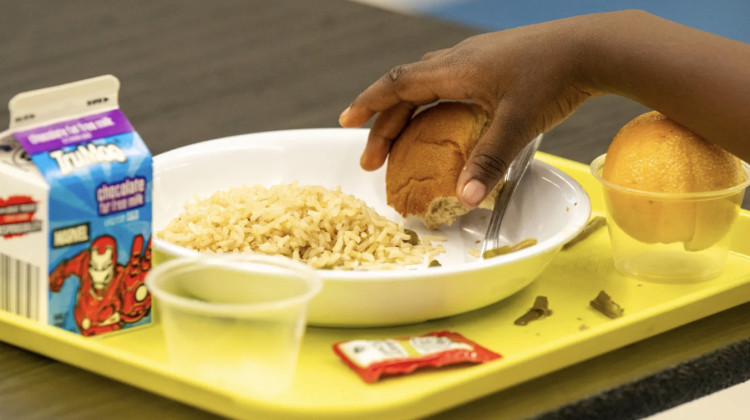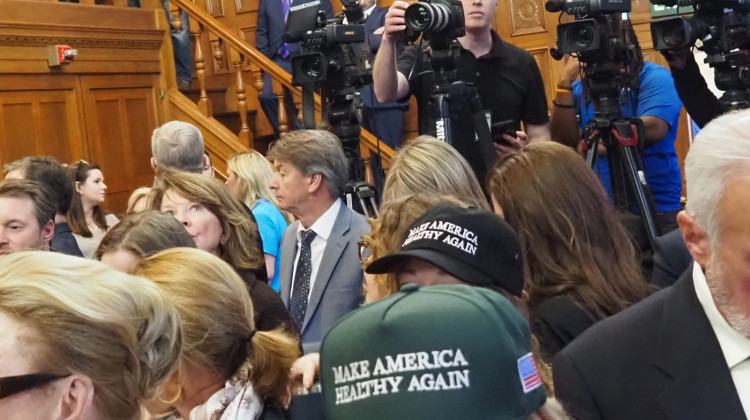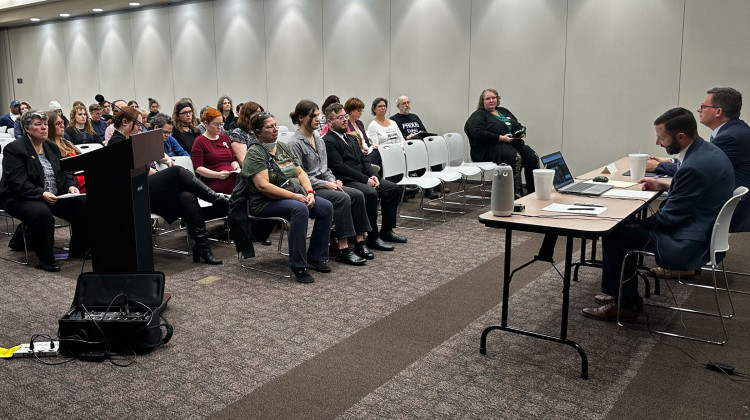Senate lawmakers overwhelmingly approved legislation to legalize the use of baby boxes, but only in hospitals.
The boxes are meant to be a more anonymous way for someone to leave an unwanted newborn. The bill makes it legal to drop off a baby in a designated box in a hospital without facing child abandonment charges.
The legislation would not sanction the state’s two existing baby boxes, both of which are in firehouses.
Sen. Travis Holdman (R-Markle) says the bill doesn’t include regulations for the boxes themselves.
“It could be something that’s installed through the wall of the building. It could be actually placed inside in a hallway of an emergency room. This may be nothing more than a crib,” Holdman says.
But Sen. Jean Breaux (D-Indianapolis) says that lack of regulation is troubling.
“We must make sure that it is as safe as possible and, until we can find a mechanism that will do that, I think this bill provides, potentially, more harm than it does good.”
Bill author Holdman says he’s trusting hospitals to ensure the boxes’ safety.
Current law provides immunity from abandonment charges to someone that drops off a baby within 30 days of birth to an emergency medical services provider, such as a firefighter, paramedic or police officer.
The Senate approved the bill 46 to 3. It now heads to the House.
 DONATE
DONATE









 Support WFYI. We can't do it without you.
Support WFYI. We can't do it without you.